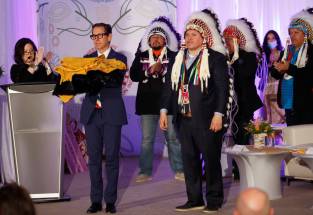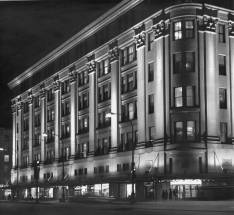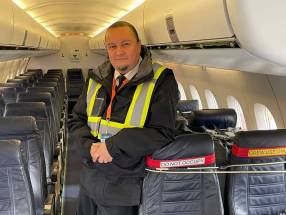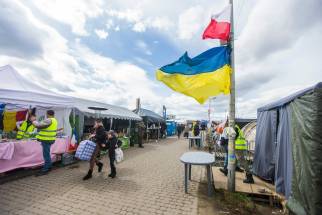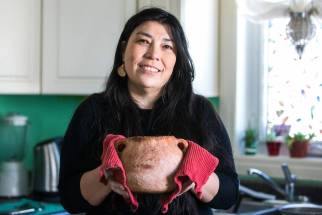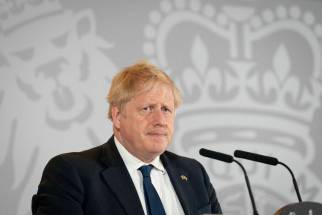‘Heart’ complications Poland welcomes Ukrainian refugees, but its handling of humanitarian crises is rarely flawless
Read this article for free:
or
Already have an account? Log in here »
To continue reading, please subscribe:
Monthly Digital Subscription
$0 for the first 4 weeks*
- Enjoy unlimited reading on winnipegfreepress.com
- Read the E-Edition, our digital replica newspaper
- Access News Break, our award-winning app
- Play interactive puzzles
*No charge for 4 weeks then price increases to the regular rate of $19.00 plus GST every four weeks. Offer available to new and qualified returning subscribers only. Cancel any time.
Monthly Digital Subscription
$4.75/week*
- Enjoy unlimited reading on winnipegfreepress.com
- Read the E-Edition, our digital replica newspaper
- Access News Break, our award-winning app
- Play interactive puzzles
*Billed as $19 plus GST every four weeks. Cancel any time.
To continue reading, please subscribe:
Add Free Press access to your Brandon Sun subscription for only an additional
$1 for the first 4 weeks*
*Your next subscription payment will increase by $1.00 and you will be charged $16.99 plus GST for four weeks. After four weeks, your payment will increase to $23.99 plus GST every four weeks.
Read unlimited articles for free today:
or
Already have an account? Log in here »
Hey there, time traveller!
This article was published 22/04/2022 (1329 days ago), so information in it may no longer be current.
KRAKOW, Poland — When I first arrived in Poland a little more than three weeks ago, I began taking pictures of anything I saw on the streets that pledged solidarity for Ukraine. I gave up on this project, mostly, after my collection swelled to over 100 images taken in just one city and only a couple of days. A rain of pictures became a river, then a flood, then an ocean.
Ukrainian Refugee Crisis
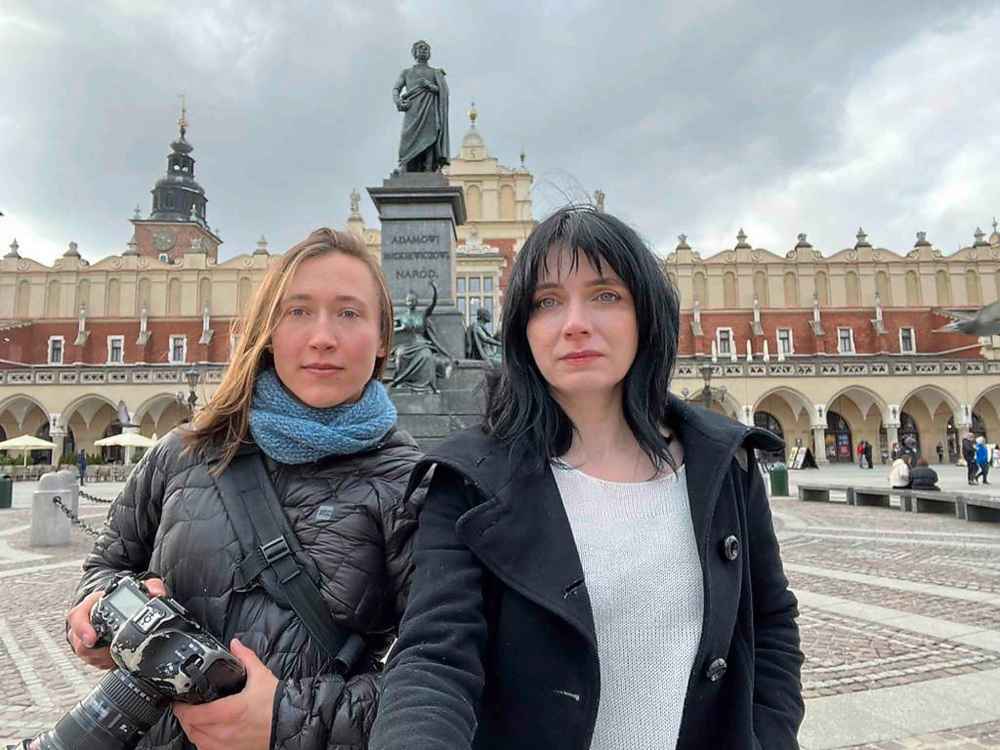
Posted:
As the world watches in horror the Russian invasion of Ukraine, and as Manitobans prepare to open their arms to refugees, the Free Press has sent writer Melissa Martin and photographer Mikaela MacKenzie to Poland to report on the largest refugee crisis in Europe since the Second World War.
Since Feb. 24, Poland has covered itself in yellow and blue. There’s hardly a store window that doesn’t bear a Ukrainian flag, or a ribbon, or a yellow-and-blue heart drawn in sign paint. Bus-stop posters feature clasped hands, along with the ubiquitous slogan “jesteśmy z wami” — we are with you. Even the flowers in sidewalk planters bloom in Ukrainian colours.
On a major road near Warsaw’s airport a giant billboard reads, in censored Ukrainian: “Putin, Go F—k Yourself.” Near the Ukrainian border, a backyard billboard has the original slogan in uncensored Russian: “Russian warship, go f—k yourself.” These aren’t official efforts; some motivated citizen spent the money to erect them.

So this is the visual backdrop to what is, on the ground, a staggering achievement in humanitarian assistance. By early April, more than four million Ukrainians had fled; most of them came through Poland, and 2.5 million stayed. In one of his speeches, Ukrainian president Volodymyr Zelenskyy said it was as if there was no border between them.
In Poland, Ukrainians have found an unparalleled welcome, one that sprung from the grassroots of the country with far less government intervention than one would expect. Every Ukrainian we meet speaks about this; each one tells a story about a Pole they met who offered them a place to stay, or bought their meal or, at least in one case, even paid for their contact lenses.
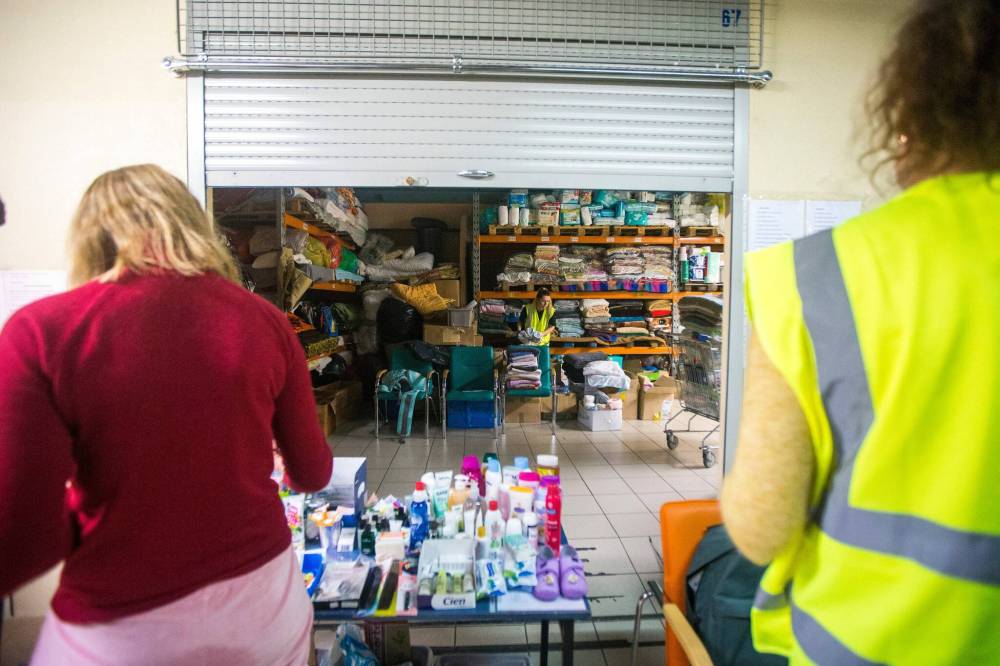
Somewhere in the picturesque hills between Warsaw and Krakow, we toured a stately old chateau that had taken in several families. Just up the road, a neighbour had brought more than 30 Ukrainians to live at his estate. Hostels, hotels, shopping malls, new apartments, old apartments, even ordinary citizens’ spare bedrooms became homes for Ukrainians to stay.
Alexander Leontiev, a Ukrainian immigrant to Pinawa who is now helping here, told me that Polish people “help with their whole heart.” Those were the same words used by Julia Khrystenok, who had fled from Kyiv and landed at a refugee centre in Rzeszów, where she stayed on as a volunteer, and other Ukrainians we met.
“Their whole heart,” they said.
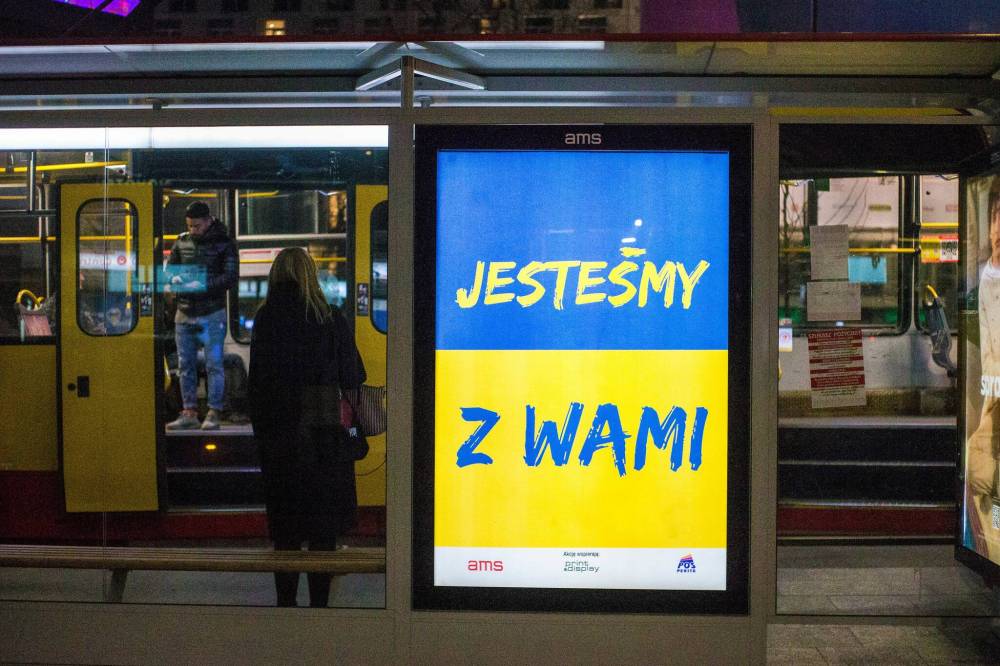
How long can that last? It’s been two months since the war started. Russian forces have pulled out of western Ukraine, and many people from those regions have started going home. Two weekends ago marked the first time since the invasion began that more people crossed the border going into Ukraine than leaving it. But in the south and east, the fighting is expected to last for months.
That means eventually the beautiful music for refugees in Poland may stop. This week, at a bar in Krakow’s old Jewish quarter, a Polish man who has been helping refugees from Mariupol and Kherson said, with some dejection, that he thought the harsh reality of long-term displacement was about to kick in: refugees won’t be able to find work in Poland, he said.
“Especially, most are women with child,” he said, miserably. “What will they do in Poland? It will be hard for them here.”
But for now, at least, the breadth and depth and spirit of the Polish response will stand as one of the most remarkable our generation has witnessed. It was at times chaotic, sprouting in countless small efforts that grew into a messy sort of safety net; but it worked, and it saved lives, and it’s one of the most immediately beautiful things I have ever witnessed.
Every time I went to a train station in Poland, where volunteers care for refugees day and night, I wept.
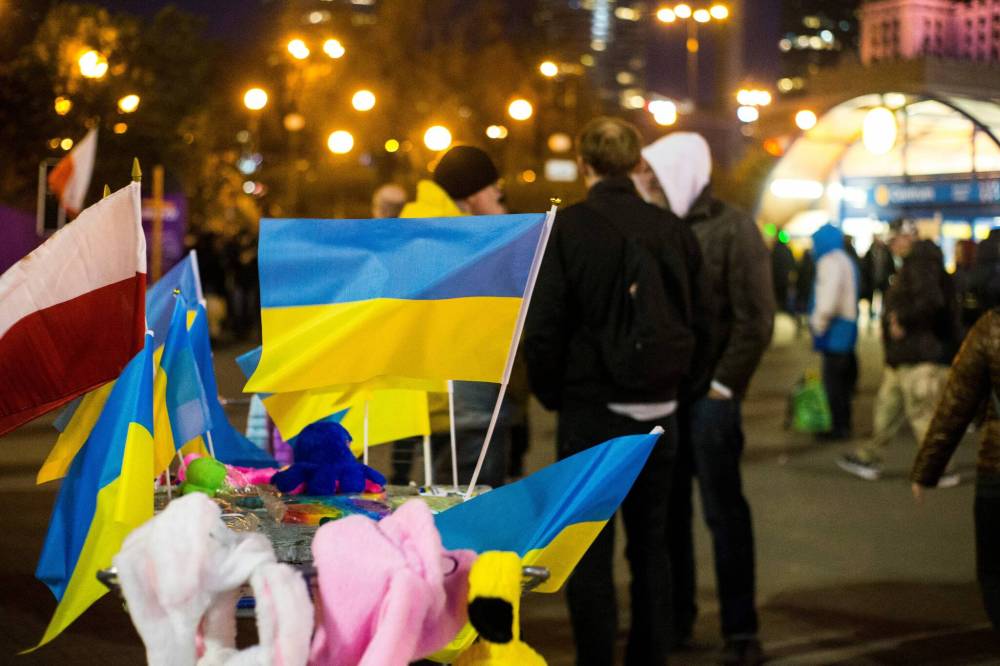
How did it happen? Michael Rubenfeld, a Winnipeg-raised actor and arts producer who has lived in Krakow for six years, told me he thought the recent history of mass protests against Poland’s hard-right government had built social frameworks that facilitated such a rapid response; over the last few years, he said, Poles have learned to organize quickly.
Still, even he was stunned by Poland’s rapidly evolving story about itself.
“That was a huge surprise, to see just how many people immediately jumped into action, and jumped into getting organized, and doing what they can to help,” he said. “It was not government-oriented, it was just all civilians. That was pretty amazing, and then everyone was just like, ‘Yes, we help. These are people and we help.’”
I wondered if any of this was self-conscious. Was there a sense that, with the war, Poland’s response was in the spotlight?
“I don’t think anyone thought about the world watching,” he said. “In a way, Poles were feeling proud of themselves, and proud of their country. It wasn’t a political issue. It didn’t matter who you supported. Everyone just understood ‘now we help.’
“In a weird way, there was almost a unification: ‘We agree on something. We help now.’”
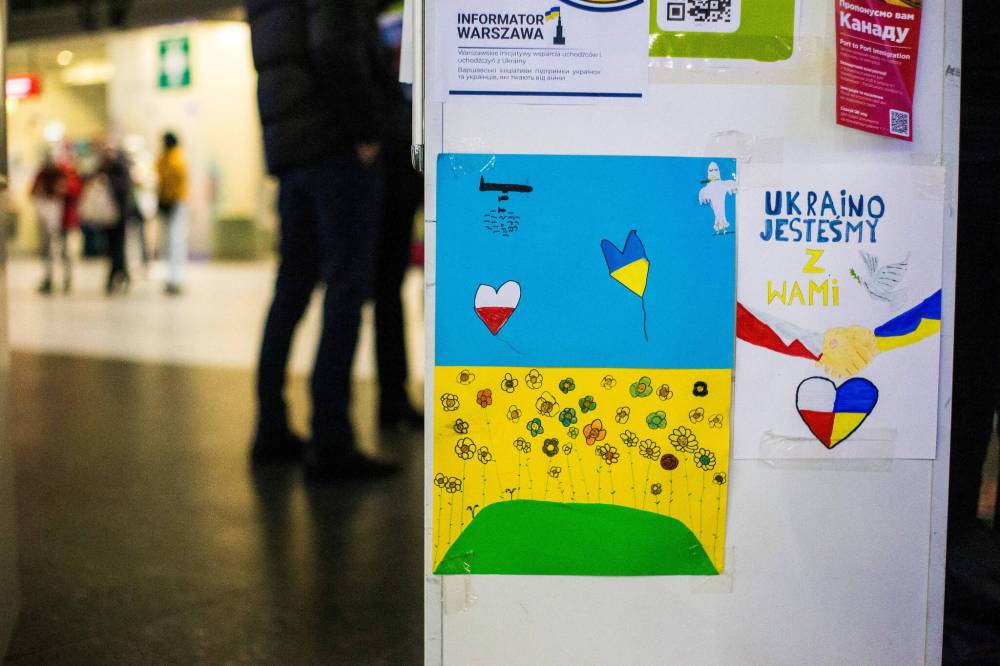
That this response is different than those experienced by waves of refugees that have fled to Europe (and North America) in recent years cannot be ignored. Partly, it was a matter of necessity; the sheer volume and suddenness of the flight from Ukraine meant that if the people here had done nothing, a humanitarian crisis would have become a staggering catastrophe in every city in Poland.
There are other factors. A certain neighbourly spirit. A pervasive anxiety that Poland could be next. Existing connections not dissimilar to those that brought me here for the Free Press.
Nearly one in five Manitobans is Ukrainian-Canadian; we don’t often do international reporting trips, but Manitobans are here and I believed we should tell their stories ourself.
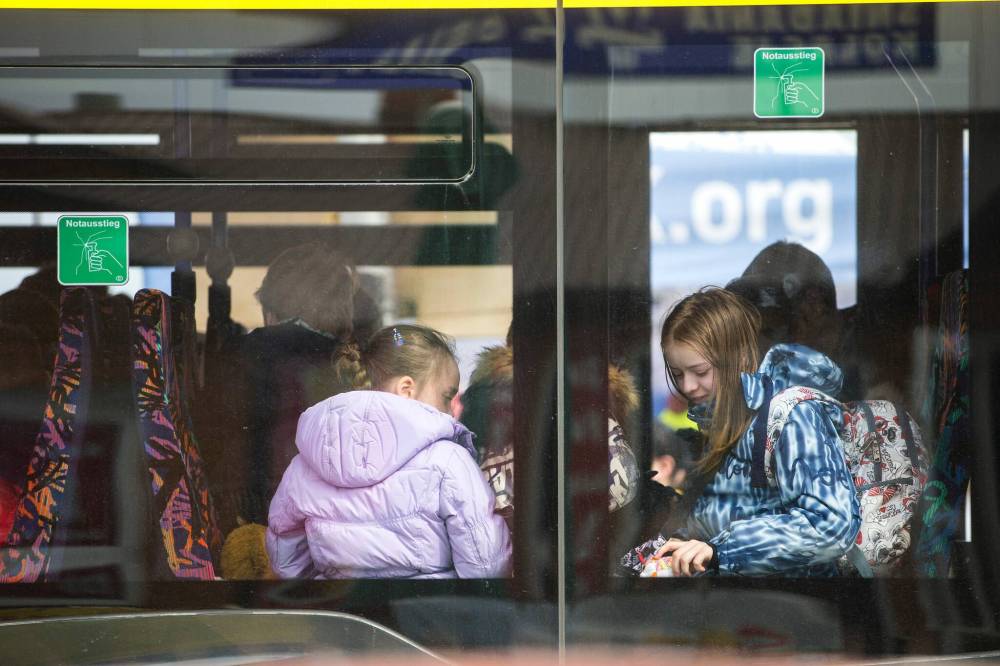
Still, there’s no question Ukrainian refugees have received a markedly warmer and less fraught embrace in Europe and North America than refugees from, for instance, Syria. Countries, including Canada, rushed to simplify entry requirements and open their doors to Ukrainians in ways many were reluctant, if not outright hostile, to do for others seeking safety.
Ukrainians haven’t been received with suspicion. They haven’t been leveraged as ammunition in political wars. There is no way to look at the responses and ignore the Islamophobia and racism that has animated the difference; we must name that to have any meaningful discussion about these issues.
On that note, there’s one story I didn’t get to tell here, that I wanted to, and it’s about the people at the Belarusian border.
That story begins, not in February 2022, but in the summer of 2021, when a surge of people seeking asylum in Europe began trying to cross into Poland from Belarus. That crisis is, like most, complicated at the top but simple at the bottom.
In May 2021, in response to proposed European Union sanctions on the country, Belarusian president Aleksandr Lukashenko warned the EU that his nation would cease stopping “drugs and migrants” and allow the EU to “eat them and catch them yourselves.” Within months, Belarus state tourism had begun advertising in countries including Iraq.
People came, and they headed to the border. But once there, the asylum-seekers and migrants found themselves caught in a nightmare. Poland pushed them back, but Belarus wouldn’t let them stay, either. Humanitarian aid was denied, and asylum-seekers reported being beaten by Belarusian police. Poland and other countries accused Belarus of “hybrid warfare.”
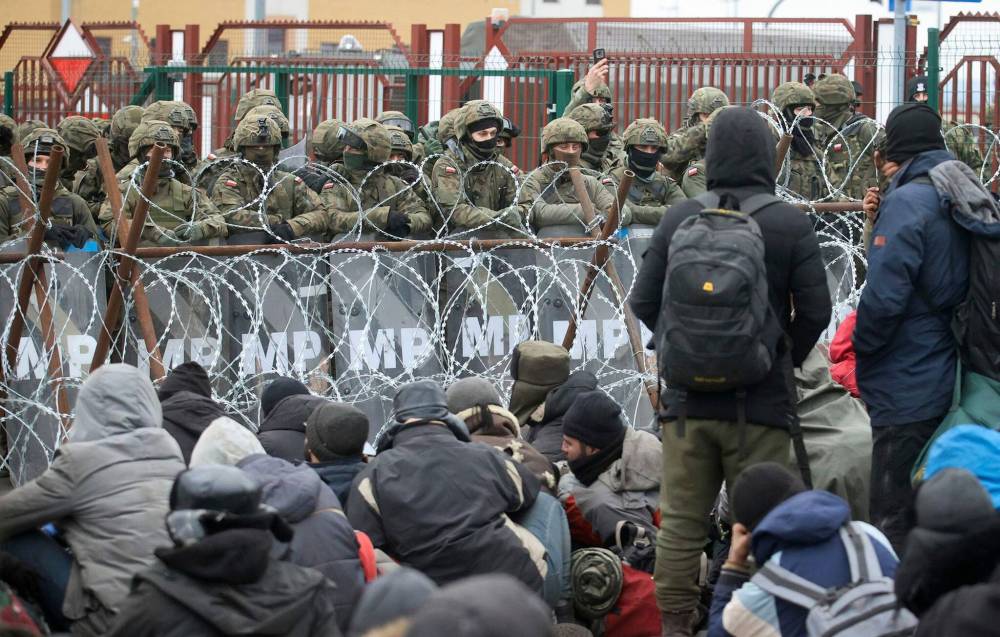
Whatever the truth of this, Poland’s government was quick to go along with treating people like weapons, and then hid them from view. It enforced a three-kilometre exclusion zone against the border, into which journalists, doctors and humanitarian aid workers were forbidden to enter. It’s now building a border wall with Belarus, as is Lithuania.
Meanwhile, a few thousand people found themselves stuck in the forest between the two countries through winter. Their living conditions have been dire: caught between nations, sometimes rounded up into camps, sometimes simply huddled outside without food, medicine or shelter. By February, at least 19 people had died, including several children.
Some commentators have called it Poland’s “other” refugee crisis. I do not think they can be said to be wholly separate. They are the same, in the way that a flipped coin still has two faces; the one hidden when it lands was acted on by the same forces.
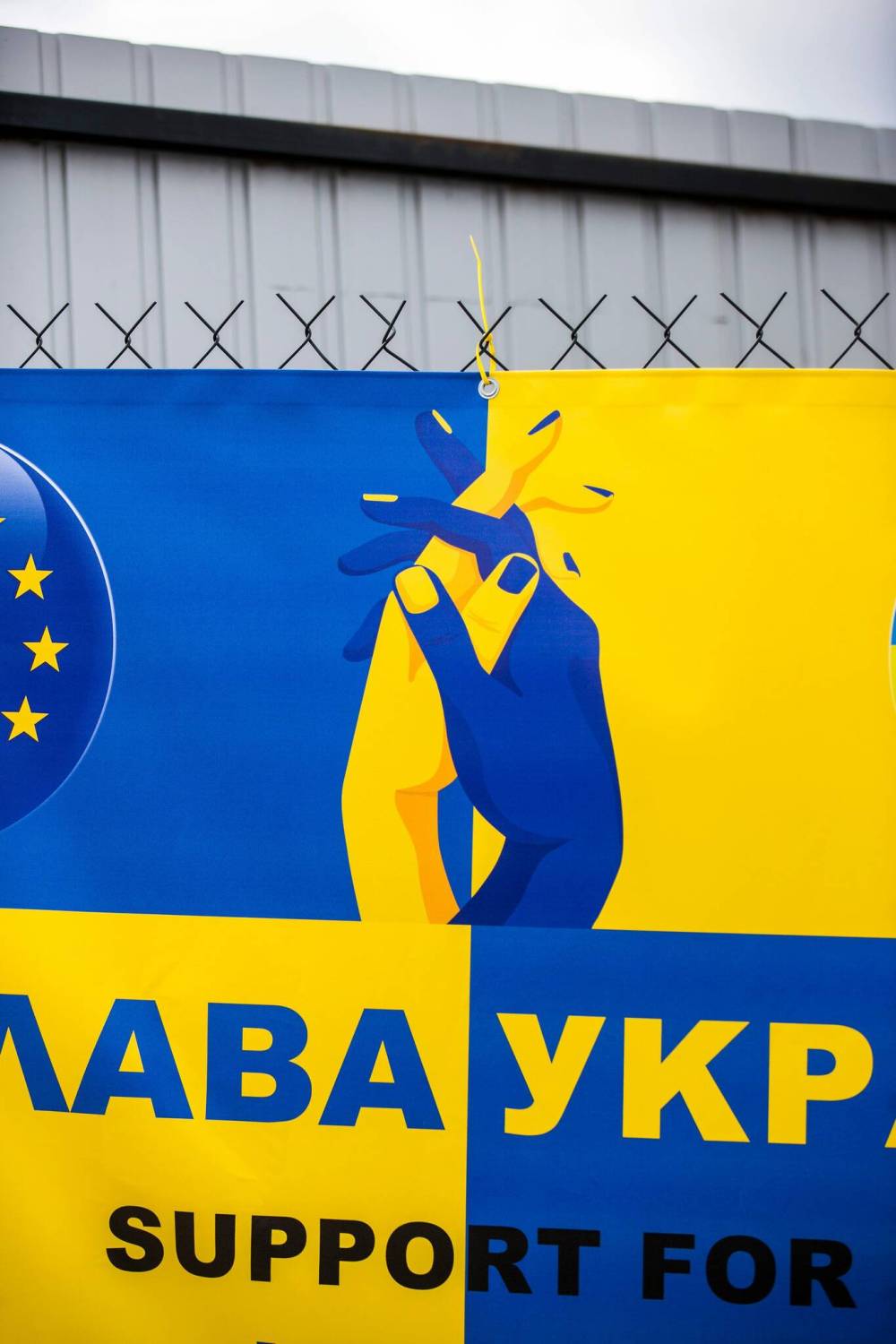
Refugees from Ukraine flee a war launched by Russia, an unprovoked invasion that has caused unimaginable destruction. At the border with Belarus, people come from Iraq, which was destabilized by the unprovoked 2003 American invasion and the ensuing civil war; and from Afghanistan, brutalized and toyed with for decades by more powerful nations.
They come from Yemen, where Canadian weapons sold to Saudi Arabia are among those wielded in a war that has killed more than 200,000 civilians and triggered mass starvation. And they come from Syria, where… well, we don’t have space to untangle all the forces that have combined to prosecute the sheer human trauma inflicted in that conflict.
In all of these events, the story in the broadest strokes is fundamentally the same: powerful forces unleash hell on a civilian population to shore up their own geopolitical aims. In all of these events, the wealthy stand to gain, and they convince their people to either support it or, at the very least, ignore their complicity in it. Those who suffer most have no say.
This is why the wildly divergent experiences of refugees in Poland must be seen together, and one shouldn’t be told without the other, because they form a coherent story about how human beings must exist in a world battered by the use and misuse of power, and also offer a crystal-clear contrast study in how such crises of humanity can be handled.
Where there was support, when people fled to a country as if there was no border between them, then the mass movement of vulnerable human beings happened with relative grace. People flowed freely, able to get the things they needed and disperse to places of safety. They were able to find living arrangements that, for the most part, provided a dignified life.
But when barriers were introduced, when people were deemed unworthy of protection and even dangerous to a nation, when just a few thousand were said to be “destabilizing the border” even as millions of others came over, the cruelty, danger to life and insult to humanity escalated, until those people were left with no option but to die in the cold.
We should take note of this, because it isn’t only Poland. In Greece, thousands of refugees from Syria and elsewhere live in camps; many there have gone hungry, including children. The United Kingdom has made moves to ease entry for refugees from Ukraine, but just this week announced a plan to relocate asylum-seekers from other countries to Rwanda.
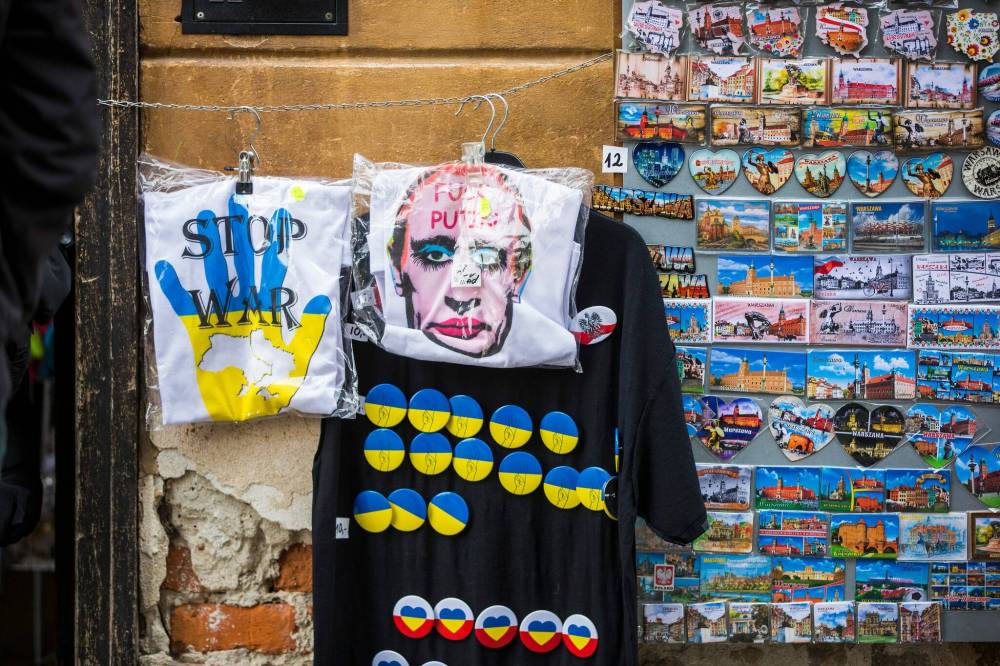
I refuse to believe any of this is inevitable. If the flight of millions from Ukraine is the moment that turns people’s eyes back to the suffering inherent in forced migration, then let it be that moment. Let it do that work. Let it call us to remember that someday, this war will be over, but others are and will be still happening, and people will still need help.
All of us, right where we are, can give it. Poland has shown us what is possible when people rise up for each other.
Since coming to Poland, I tried to meet with several activist groups that are helping at the Belarusian border. It was hard to track them down and I played a lot of text tag. The language barrier and existing demands on their time were probably issues. I thought about going to the region myself, but without a guide, it didn’t seem safe.
I wasn’t inclined to end my trip in a Polish prison.
Still, I wish I could end with their voices here, because their work deserves attention. News, often, has an unfortunate way of flattening places and events into a narrow focus without nuance, without texture. In one such narrative, Poland becomes all good; in another, its treatment of largely Muslim asylum-seekers caught on the border, it’s all bad.
The reality is, of course, is that it’s neither.
Yes, it’s in Poland where a border dispute has forced people to suffer in limbo, but it’s also in Poland where activists and aid groups risk everything to get food and warm clothes to the people huddled at the Belarusian border. Some have been caught by police and taken before a judge; still, their brave and ferociously loving work continues.
And it was in Poland where people living in villages by the border began sneaking into the woods to hang bundles of aid in the trees, under threat of being detained by police. One such resident told the New York Times that, though he couldn’t fix the policies that left people stranded in the cold, “no one will die in my forest.”
Reading that, I thought of the volunteers in Emerson over the winter of 2017, when an unprecedented wave of people walked north into Canada from the United States. Some volunteers were apprehensive about what was happening, but they went out on frigid nights anyway, trying to make sure nobody perished who might have found warmth.
The bad in the world, and in people, speaks in cruelty and destruction. But if you want to see the good in people, you will find it in the same place, and from there you can see the foundations of bridges that are waiting to be built. The lesson of Poland’s refugee crisis — not two, but one — is that the good is ever-present, waiting for an invitation to happen.
melissa.martin@freepress.mb.ca
Our newsroom depends on a growing audience of readers to power our journalism. If you are not a paid reader, please consider becoming a subscriber.
Our newsroom depends on its audience of readers to power our journalism. Thank you for your support.



